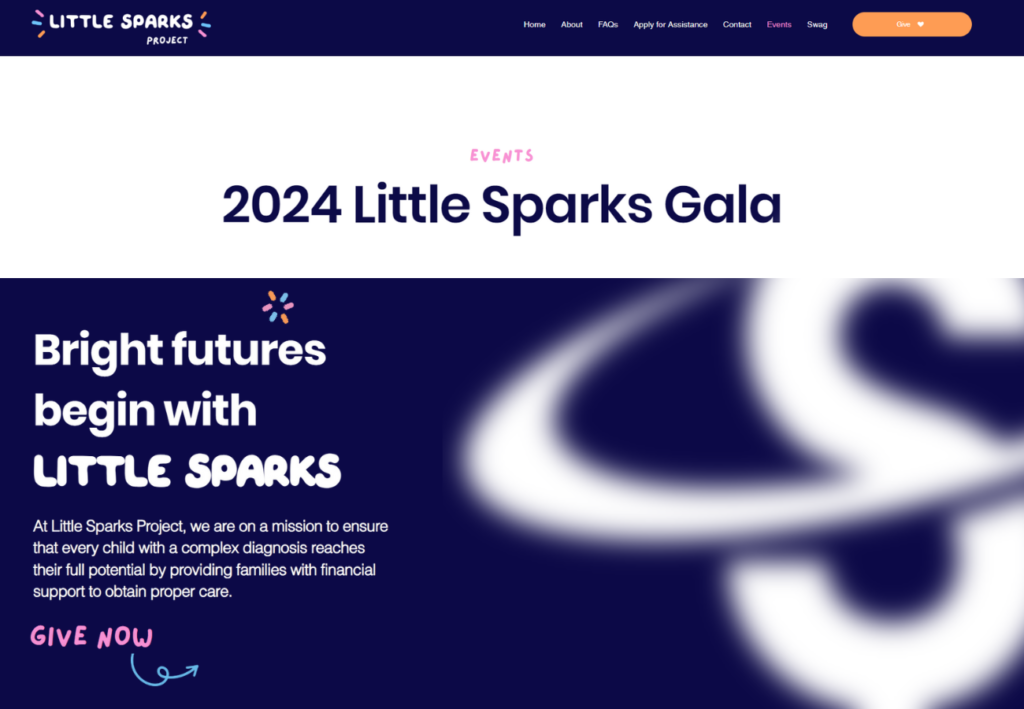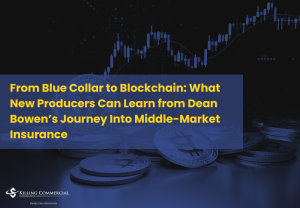Championing Advocacy and Support for Families of Children with Medical Complexities

Navigating the challenges of raising a child with medical complexities is a journey few understand until they’ve lived it. The emotional, physical, and financial strains weigh heavily on families, and finding support can feel overwhelming. Recognizing these challenges, the Little Sparks Project emerged, offering financial and emotional support to struggling families.
At the core of this project is the belief that no parent should have to choose between essential support for their child and financial stability. Through the dedication of people like Raghav Tana and David Carothers, the Little Sparks Project has created a network of compassion and relief for families in need. This blog highlights the importance of advocacy, supportive communities, and the impactful work of Little Sparks.
Understanding the Burdens of Medical Complexities
The journey of parenting a child with special needs or complex medical conditions is one that challenges even the most resilient. From the moment a parent receives news of their child’s diagnosis, life changes dramatically. The emotional weight is constant, accompanied by fears, unknowns, and significant adjustments to everyday life. The financial burden, often overwhelming, further compounds these challenges, forcing families into impossible choices.
For families in such situations, the costs are rarely limited to medical bills alone. Frequent travel, extended hospital stays, and treatments can total tens of thousands within the first months. David Carothers and Raghav Tana understand these hardships firsthand. Both have faced extraordinary expenses in their journeys as fathers to children with unique needs. As Raghav has shared, the financial toll can be “life-changing,” but so, too, is the emotional weight that accompanies it.
The financial support that Little Sparks provides allows parents to focus on their children’s well-being rather than the costs. However, this support extends beyond money, offering peace of mind and relief during overwhelming times.
The Role of Advocacy for Children with Special Needs
Advocacy is one of the most critical elements of supporting children with special needs.Often, parents unexpectedly become advocates, striving for resources, educational support, and necessary accommodations. They become their children’s voice, navigating bureaucratic challenges to secure the best possible support.
Why Advocacy Matters
Advocating for children with complex medical needs ensures access to essential care and otherwise unavailable resources. This advocacy is crucial in public schools, where specialized programs greatly impact a child’s development. IEPs are essential programs that ensure special needs students receive the support they require. However, these programs’ benefits are only accessible when parents stay informed and advocate persistently.

David and Raghav each share their journeys, emphasizing the need for guidance, support, and advocacy courage. David shares that having a child with special needs profoundly changed his life and leadership.
Resources and Support for Parents
Organizations like Team Impact offer programs that provide special needs children with mentorship, friendships, and experiences through team-based activities, giving them a chance to feel included and empowered. Additionally, the Little Sparks Project works tirelessly to ensure families are not alone in their advocacy journey. By connecting parents to helpful resources and programs, the project lightens the load families carry.
Parents facing similar challenges can find comfort in knowing that advocacy is possible and that resources are available. Although the path is seldom easy, organizations and communities dedicated to supporting children with special needs can make all the difference.
Building a Supportive Community
In times of need, community support can be transformative. A network of people who understand the challenges and offer assistance, whether emotional or financial, provides families with resilience. Community-driven projects like Little Sparks exemplify the importance of solidarity among families dealing with medical complexities.
The Importance of Community for Families with Medical Complexities
Community gives families dealing with medical complexities more than just a sense of belonging—it provides practical resources, emotional support, and an extended family of advocates. As David reflects, sharing their family’s journey has helped others feel less isolated and more empowered to seek support. Little Sparks has become a central part of this supportive network, giving families a place to turn when they need help the most.
By creating opportunities for families to connect and support each other, Little Sparks fosters a sense of unity that helps parents face daily struggles. The project’s impact extends beyond financial aid, creating a nurturing environment where families can thrive amid adversity.
The Little Sparks Gala – An Event with Purpose

One of the primary ways Little Sparks raises funds and awareness is through its annual gala. This special event not only celebrates the work of Little Sparks but also brings together people from all backgrounds who share a commitment to supporting families in need. This year’s gala will be held on December 19 at the State Room in Boston, offering a chance for supporters to come together, raise funds, and make a lasting impact.
Details and How to Get Involved
The gala promises an unforgettable evening filled with inspiring stories, fundraising activities, and opportunities to connect with others who are dedicated to supporting families in need. Hosted in a beautiful venue with an impressive lineup of speakers and a silent auction, the gala serves as a gathering of like-minded individuals ready to make a difference.
For those who are unable to attend, there are still many ways to support Little Sparks, from online donations to sharing information about the organization on social media. Even the smallest contribution goes a long way toward making a difference in the lives of families facing seemingly insurmountable challenges.
Takeaways for Industry Professionals
For those in the insurance industry, supporting organizations like Little Sparks offers more than just a chance to give back—it provides a reminder of the importance of community and empathy. The insurance profession is, at its heart, about protecting others and preparing for the unexpected. Understanding the challenges families face when dealing with medical complexities can inspire professionals to consider how they can be more supportive, whether by participating in charitable work, offering resources, or simply being empathetic to clients facing difficult times.
Lessons in Resilience and Support
David Carothers and Raghav Tana’s stories reveal the profound impact of resilience in the face of hardship. Their experiences underscore how determination, coupled with community support, can make even the hardest circumstances manageable. For insurance professionals, this serves as a valuable lesson: clients aren’t just customers; they are people who may need an advocate, especially in times of crisis. By fostering a supportive culture within their own companies and with clients, industry professionals can help build trust and a stronger connection with those they serve.
Conclusion: A Call to Action for All
As we look at the incredible work of Little Sparks, it’s clear that the difference they make goes far beyond dollars and cents. It’s about giving families the confidence that they are not alone, that a community stands behind them, ready to help with the emotional and financial burdens they carry. The Little Sparks Project empowers families facing unimaginable challenges and gives them hope.
Please consider contributing however you feel comfortable today.

Turning Homeowners Into Referral Engines: How Homebot Helps Insurance Agencies Win Personal Lines Through Automation, Relationship Equity, and Real Estate Synergy
Personal lines has quietly become one of the most competitive segments in the insurance industry. Agencies that once dominated their local markets are now fighting to differentiate themselves against direct writers, digital-first carriers, and large brokers with massive content machines.

Why the Soft Cyber Market Is Your Best Opportunity: Protecting Clients, Managing Risk, and Driving Revenue
The cyber insurance market has always been unpredictable. Over the past decade, we’ve seen it move from an emerging line of coverage to one of the most volatile, swinging rapidly between soft and hard market cycles. But today, cyber has entered one of the softest markets in recent memory—and that presents a rare opportunity for both agents and clients.

Captives Have Moved Downstream: Why Middle-Market Producers Must Master the Conversation—Or Get Left Behind
For most of my 20-year career, captives felt like something reserved for the insurance elite—the jumbo accounts, the Fortune-level operations, the companies with multimillion-dollar manual premiums and entire departments dedicated to risk management. If you had asked me ten or fifteen years ago whether a $250,000 account was a legitimate captive candidate, I would’ve laughed. I thought captives were reserved for companies so complex and so large that the only rational way to insure them was to build an insurance company around their risk.

From Blue Collar to Blockchain: What New Producers Can Learn from Dean Bowen’s Journey Into Middle-Market Insurance
Breaking into the commercial insurance industry is never easy—especially when you’re young, new, and entering a hard market where expectations are high and patience is low. But every once in a while, a story comes along that perfectly illustrates what it really takes to survive and succeed as a new producer.

Financial Literacy Is the Hidden Competitive Advantage for Middle Market Insurance Producers
Most commercial insurance producers believe their edge comes from relationships, market access, or quoting speed. Those things matter. But at the middle market level, they are no longer enough.
The producers who consistently win larger accounts, earn underwriter trust, and build long term career leverage all share one trait that rarely gets talked about openly.
Cracking the Code on Sales Talent: How Insurance Agencies Can Recruit, Develop, and Retain Top Producers
We can talk all day about marketing funnels, quoting platforms, and prospecting strategies—but if you don’t have people who can sell, none of it matters. Every agency owner I talk to says the same thing: “We just can’t find producers who can sell.”

Responses